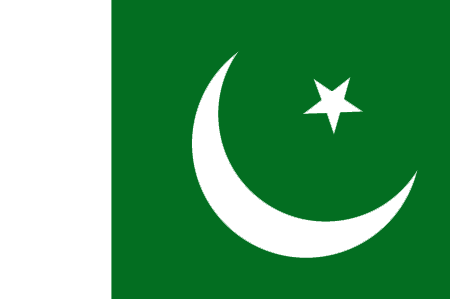Login form
Customs of Pakistan
Marriage and Family
 Individual choice of marriage partners has traditionally played a small role in the marriage process, and arranged marriages are still the standard. Formal engagements may last from a few months to many years, depending on the age of the couple. In some cases, the bride and groom meet for the first time on their wedding day. Pakistanis view marriage as a union of two families as much as a union of two people. Both families participate in the wedding preparations. A Qazi, or judge, completes the marriage contract between the two families. Wedding rituals are elaborate, and men and women generally celebrate separately.
Individual choice of marriage partners has traditionally played a small role in the marriage process, and arranged marriages are still the standard. Formal engagements may last from a few months to many years, depending on the age of the couple. In some cases, the bride and groom meet for the first time on their wedding day. Pakistanis view marriage as a union of two families as much as a union of two people. Both families participate in the wedding preparations. A Qazi, or judge, completes the marriage contract between the two families. Wedding rituals are elaborate, and men and women generally celebrate separately.
Although increased modernization has brought many women into public life, the male is considered head of the home. It is common for the extended family—a father and mother, children and their families—to live together in the same household. The presiding male of the family has significant influence over the lives of all family members, although women are becoming more active in decision making. Islamic law permits a man to have up to four wives if he can care for each equally, but very few Pakistani men have more than one. The elderly are highly respected.
Nuclear families are generally large4.41 children per woman (2001). The government promotes family planning to help curb population growth.
Eating
The mainstay of the Pakistani diet is chapati or roti, an unleavened bread similar to pita bread. Pakistani food is generally spicy and oily. Observant Muslims do not eat pork or drink alcohol, and strict civil laws govern the sale and consumption of alcoholic beverages. A type of yogurt is commonly eaten at meals, and rice is part of many meals and desserts. Two customary dishes include pulla´o (lightly fried rice with vegetables) and biryani (rice with meat or vegetables and spices). Kheer is a type of rice pudding.
Only the more affluent families can afford to eat meat (usually mutton, lamb, beef, or chicken) or fish regularly. For marriage feasts, chicken curry is common. There are significant regional differences in cuisine. For example, curries and heavy spices prevail in the south, while barbecuing is more common in the north. The kabab, strips or chunks of meat barbecued over an open grill on a skewer, is cooked with or without spices and is prepared in various ways. Vegetables and fruits figure prominently in the diet. Snack foods include samosas (deep-fried pastry triangles filled with vegetables) and pakoras (floured and deep-fried vegetables). Tea is the most popular drink.
Muslims use only the right hand to eat food. In urban areas, many people have dining tables and may eat with utensils. In rural areas, people sit on the floor or ground to eat. Whenever possible, the whole family eats together. Chapati is used to scoop up the food. Often the father feeds young children and the mother feeds infants. In large groups, men and women eat in separate areas. Extended families often gather for large meals. During the month of Ramzan (Ramadan), Muslims do not eat or drink from sunrise to sundown. They eat together in the evenings, which are also occasions to visit or offer prayers. During Ramzan, it is considerate for non-Muslims to avoid eating or drinking in front of Muslims during daylight hours.
Socializing
A handshake is the most common greeting in
There is a long tradition of hospitality in
Recreation
Introduced during the British colonial period, cricket, field hockey, and squash are among the most popular sports. Sports developed in
Holidays and Celebrations
Secular holidays include Pakistan Day (23 March); Labor Day (1 May); Independence Day (14 August); Defense of Pakistan Day (6 September); the Anniversary of the Death of Quaid-e-Azam, or Mohammad Ali Jinnah, the nation's founder (11 September); Allama Iqbal Day (9 November); and the Birth of Quaid-e-Azam (25 December). There are also bank holidays in December and July.
Islamic holidays are scheduled by the lunar calendar and fall on different days each year. The most important ones include Eid al-Fitr, the three-day feast at the end of the month of Ramzan (Ramadan); Eid al-Adha (Feast of the Sacrifice), which commemorates Abraham's willingness to sacrifice his son, as well as the pilgrimage (haj) to Mecca (Makkah); and Eid-i-Milad-un-Nabi, the birth of the Prophet Muhammad. During Ramzan evenings, many towns sponsor fairs and other celebrations. During Shab-Barat, which precedes Ramzan, Pakistani Muslims ask God, known as Allah, to forgive their deceased loved ones. This is a night for prayer in mosques, reading the Qur’an, and visiting graveyards. It is believed that this is the time at which Allah decides people's fates for the coming year. People also light fireworks, light up the exteriors of mosques, and donate food to the needy.
Source: Encarta Interactive World Atlas

